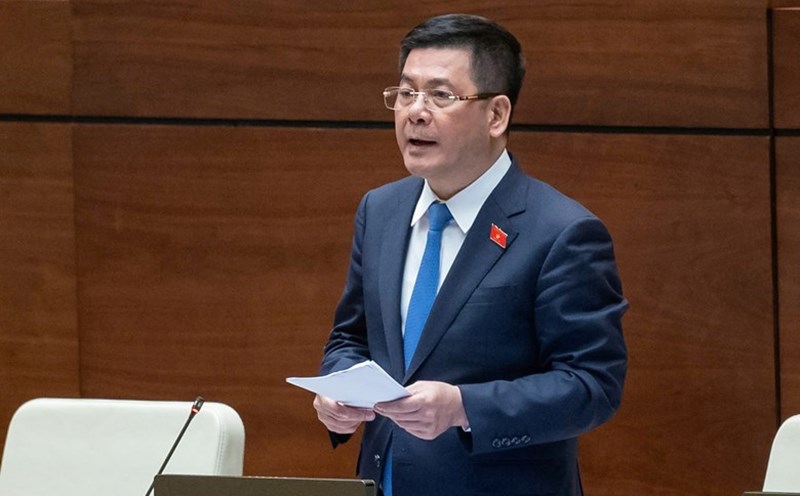The famous line in the song "Fame" performed by American singer Irene Cara includes the line: "I will live forever." Although it is a metaphor for immortality through the legacy left behind after life, the line evokes an aspiration in life, especially in the technology industry.
Many tech giants have invested heavily in projects aimed at “preventing death,” treating it as a solvable technical problem, like upgrading the operating system of a smartphone. But can humans really achieve immortality? And if not, what is the limit to our lifespan? In 1997, a French woman named Jeanne Calment died at the age of 122, holding the record for the longest-lived person on record.
150 years old - The absolute limit of human lifespan?
According to a study published on May 25, 2021 in the journal Nature Communications, human lifespan appears to have an "absolute limit" of around 120 - 150 years. After this point, the body completely loses its ability to recover from impacts such as illness or injury, leading to death. The research team, led by Timothy Pyrkov, analyzed data from more than 500,000 people in the US, UK and Russia. They used indicators from blood tests and physical activity to measure the body's ability to recover from events. According to the researchers, even without any pathology, the body's ability to recover still declines with age. They found that, by the age of 120 - 150, the recovery time is too long, causing the body to lose its endurance, and eventually, life cannot continue.
However, not all experts agree. “Studies like this are based on current data and are more predictive than definitive,” said Judith Campisi, a professor at the Buck Institute for Research on Aging. She stressed that living long does not mean living well. Meanwhile, professor
S. Jay Olshansky - University of Illinois Chicago, affirmed: "Although modern medicine can prolong life, the body will still decline due to the natural aging process. This is inevitable".
When people work until 100 years old
David Sinclair, an Australian biologist and scholar at Harvard University, leads one of the world's most advanced laboratories and research groups on longevity. He is also the author of the book "Longevity: Why We Age and Why We Don't Have to". "There is no economic model for a world where people live 40 or more years beyond the traditional retirement age," Sinclair says in his book. "We have absolutely no data on the working, retirement, spending habits, medical needs, savings and investments of groups of people who live well into their 100s. Anyone who says they know the answers to these questions is a fraud." Of course, we don't know for sure, but that doesn't stop us from speculating and imagining the future, starting with work.
Job:
There have been recent protests in France against the government raising the retirement age from 62 to 64. If people can live to 150 and be physically and mentally healthy until 140, then it makes no sense to retire for more than half of their lives. Sinclair suggests the idea of a “skills gap,” where people take a paid year off after every 10 years of work. This gap allows us to travel, learn new skills, pursue personal projects, or simply recharge. And with the rise of artificial intelligence and robots, jobs may no longer be necessary.
Another question is how many jobs in 100 years of work? Today, some people change careers in midlife or when they realize their current job isn’t right for them after a decade. In the future, when life expectancy doubles or triples, we may be able to try many more jobs because of the time ahead.
Entertainment:
Today, life is divided into clear stages: play and learn when young, work for a few decades, and retire. But in a world with longer lifespans, age is just a number. People can spend more years traveling, enjoying the outdoors, and maintaining relationships that span generations.
Family:
Imagine not only seeing your children grow up, but also meeting your great-grandchildren and great-great-grandchildren – all healthy and close to you. Family bonds will deepen, with strong connections across generations.
Economy and consumption:
As people live to 150 in good health, the economy and consumption will change dramatically. New services will be created to serve the healthy elderly, but this may lead to a new wealth-poor divide between the wealthy elderly and the deprived young. In terms of consumption, the healthy elderly may continue to consume like the young, placing great pressure on the Earth’s already limited resources.
Medical:
Longer life expectancy could have a positive impact on health care. Currently, the majority of health care spending is spent on treating age-related diseases. If aging were controlled, many diseases would be reduced or eliminated, freeing up resources to focus on other diseases.
If aging is a solvable technical problem, can death be prevented? However, as the wise say, be careful what you wish for. Jose Saramago's brilliant novel, Death Interrupted, describes the prospect of death ceasing to function in a country. At first, everyone is happy, but gradually, unexpected problems begin to appear. Death gives meaning to life.
"Personally, I think I'd like to live to 150, meet my great-great-grandchildren, and then, perhaps, I'd be content to leave the stage to another generation. 150 years seems long enough - at least to me right now," says biologist David Sinclair.
Prioritize quality of life over living forever
While longevity may be a dream, experts stress that what really matters is improving quality of life, according to the New York Times. “It’s not how long we live, but how long we live well,” said Campisi.
In recent years, many scientists have focused on extending “healthy life span”—the time people live active and disease-free lives. Research is testing methods such as reprogramming aging cells or using drugs to reduce the signs of aging. But a world without death is still a long way off. As Campisi says, “Death gives meaning to life. And one thing is certain: we are all going to die.”
With advances in medicine and technology, human life expectancy is getting longer and longer. However, living long does not necessarily mean living meaningfully. Perhaps, instead of searching for ways to overcome biological limits, we should learn to enjoy every present moment - to make life more complete.









